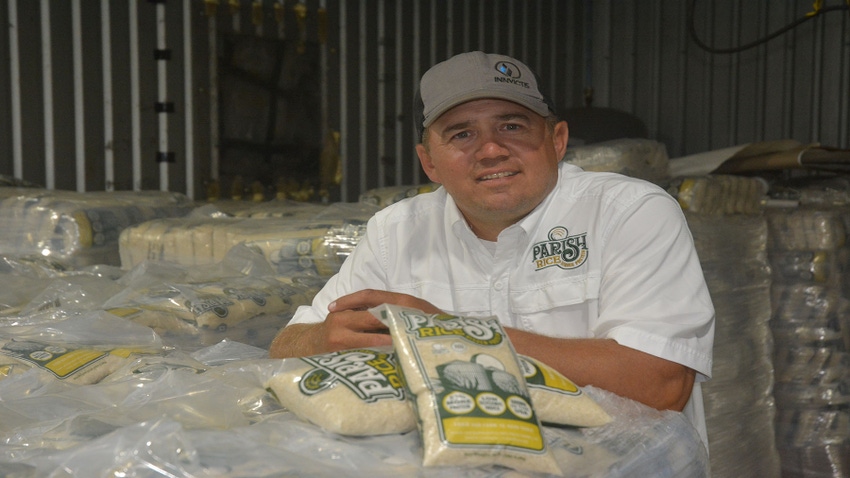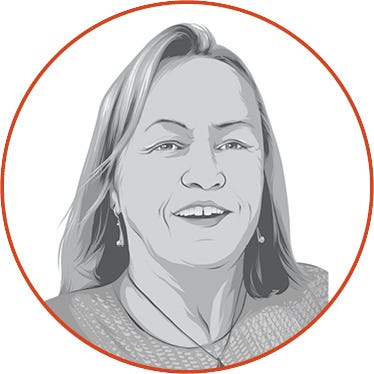
Michael Frugé dreamed of improving the quality of rice offered by U.S. brands.
The LSU AgCenter visualized a world where poverty-stricken people with diets heavy on rice could get more protein.
Neither knew that a side benefit of both goals would be delivering a white rice with a lower-glycemic index – one diabetics could include in their diet.
“I wanted to build Louisiana’s reputation for rice. I knew we had something different,” Frugé said. “I didn’t know how different.”
Frugé and his northern counterpart, Blake Gerard of Cahokia Rice in Illinois, were working the food industry to market Frontière, a high-protein rice developed by breeders at Louisiana State University. They promoted 53% protein, high-quality grain, GMO-free, and grown in the USA. They made the rounds to grocery retailers and food service trade shows. It was at one of those shows that a nutritionist asked Gerard why he left out the most important detail.
Accidental discovery bolsters brand
Gerard didn’t know what that detail might be. Turns out that when the carbohydrate-to-protein ratio changes the glycemic index rating also likely changes.
“We dropped down to a 41 on the glycemic index, which makes our rice a low-glycemic food,” Frugé said. “We had no idea until we had it tested.”
Frugé is careful to point out that the lower rating offers an opportunity for people who need to watch their blood sugar level to add rice back into their diet, but it is not permission for a diabetic to consume large amounts of rice. “It is not a cure-all,” Frugé said.
However, it is a game changer from a marketing perspective.
“We are able to bring people back to the rice section,” Frugé said. “And that’s what I have always wanted to do. Part of what I want to do.”
Quality matters in rice country
Frugé started this venture into marketing his own brand because he wants to rebuild Louisiana’s reputation for quality rice.
“I want people to buy my rice, but I also want to promote Louisiana rice,” Frugé said. “We have issues in the rice industry. We’ve lost our gold standard for quality. I want Louisiana to get that back.”
Frugé heard about those issues in the 2010s when he was working for Horizon Ag. He was traveling the world to talk about rice, and he was hearing feedback on quality issues. That bothered this second-generation rice producer.
“As farmers we were focusing on quantity. We need to make money, but we need to produce a quality product,” Frugé said.
So, he started Prairie Acadian Rice to reflect his Cajun roots. After he moved to the Frontière variety and learned about the glycemic advantage, a marketing firm talked him into moving to Parish Rice.
“Their idea was to tie it to Louisiana culture. Anybody who has been here knows our food is good,” Frugé said. “The marketing team convinced me.”
The marketing piece is essential because Frugé is now in a niche market with a product that doesn’t hit that yield mark that rice farmers traditionally needed to make a profit. In fact, Frugé reported, Frontière yields about 20% less than other varieties on his farm.
Frugé’s goals are a bit different than they were when he was growing traditional varieties and selling into a mass market.
Telling Louisiana’s story
Frugé’s goals are that standard on-farm goals – make a profitable, high-quality crop. His challenges include processing his rice separately for traceability, ensuring a good supply of bags, and getting his brand onto store shelves and into new markets.
“In the middle of 2021, fighting the COVID hangover, we were trying to get bags from anywhere we could. My dad and I both thought I was crazy,” Frugé said. But his dad, Raymond Frugé, continues to be on his fighting side.
Raymond Frugé helped his son get started with a field or to farm on the side while he was working at Horizon Ag. In 2012, Frugé told Horizon that he needed to leave or get a smaller territory so he could farm. Horizon supported his dream.
“I was always honest with them. Horizon knew everything. They knew when I was on the farm. They knew when I was on the road for them. I never hid anything,” Frugé said.
When headhunters came calling, Frugé said, he had a quick response: “You don’t want to hire me. I’m destined for one place. Everyone knew where I was going.”
And today everybody knows that his passion isn’t limited to Parish Rice. He also continues to promote Louisiana rice. Period.
“When I go to talk to somebody – to try to get my rice on their shelves – and they turn me down, I make sure to promote Supreme or Falcon (Louisiana rice brands) to them before I walk out that door,” Frugé said. “Other brands are not my competition. We all need to promote Louisiana rice.”
About the Author(s)
You May Also Like






